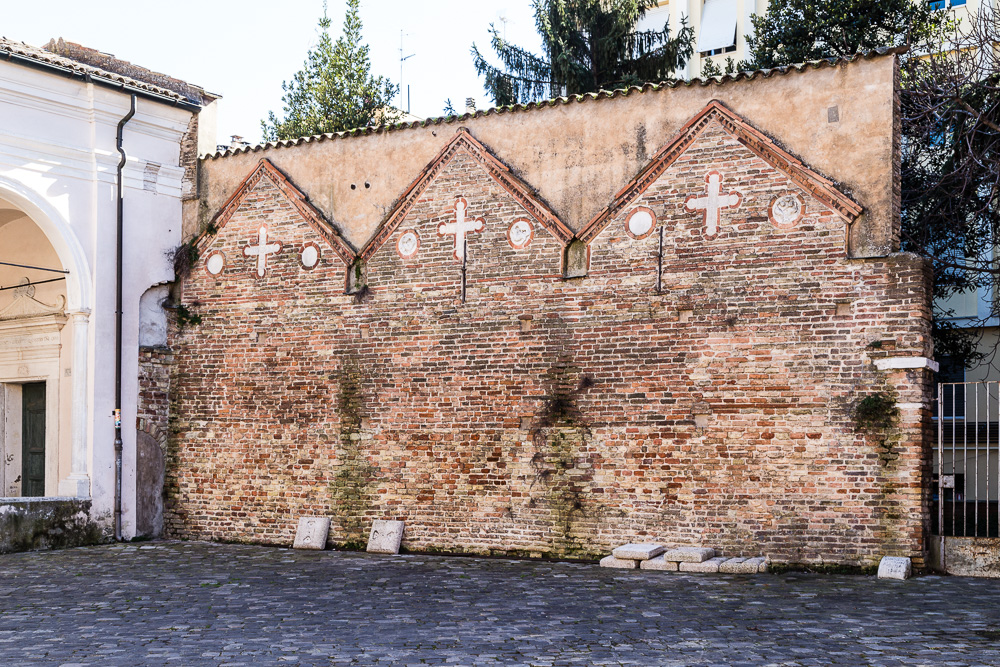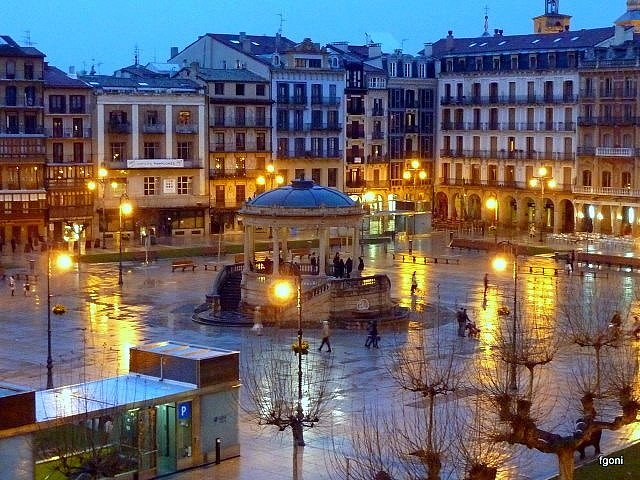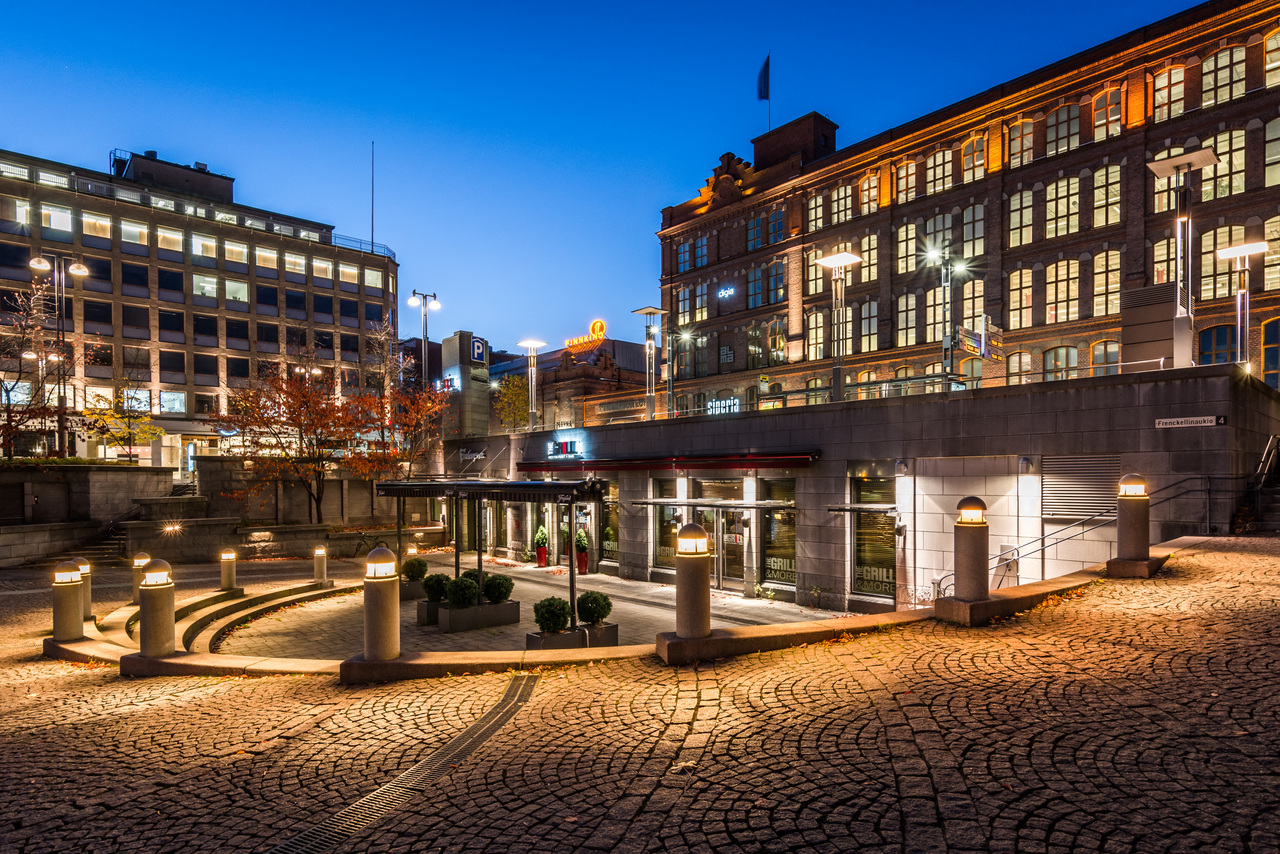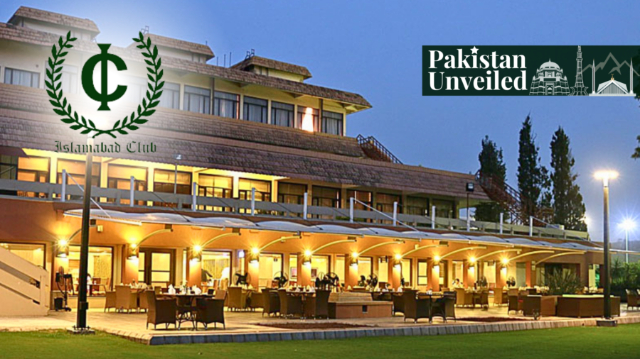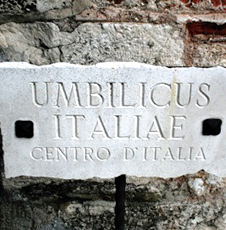Near the Baptistery of the Arians there is a very particular wall, which stands out from the other walls of the city. Many have seen it, but not everyone knows its name: it is the so-called Wall of Droctulfo.
According to the historian Agnello from Ravenna (9th century AD), a knight of Lombard origins named Droctulfo lived in this area. Of Swabian origin, in his youth he had been a slave at the court of the Lombard king Alboino. In spite of this he managed to become a Lombard duke.
In 572 A.D. the turning point that made him famous: during the war between his people and the Byzantines, he betrayed his comrades and fought alongside the inhabitants of Ravenna for the defence of the city.
The historian Paolo Diacono hypothesized that the change of flag took place to avenge the state of captivity he had suffered as a young man.
From then on, Droctulfo always fought alongside the Byzantines. He died far from Ravenna but, by his own request, was buried here.
He was celebrated with all honours: a beautiful epitaph was dedicated to him, praised for its literary quality by Benedetto Croce and which inspired a story by the great Jorge Luis Borges. The story by the Argentine writer is entitled Story of the Warrior and the Prisoner.
Epitaph of Droctulfo
"Droctulf is locked in this tomb, but only with his body.
For by his merits he lives throughout the city.
He was with the Bards, but he was Swabian by blood:
and therefore he was gentle to all nations.
His countenance was dreadful, but his spirit good,
His beard was long upon his strong breast.
He loved the name of the Roman people,
He slay’d his own people.
For our love, he despised his beloved parents,
Thinking that here, Ravenna, was his home
His first glory was to occupy Brescello
And when he stayed there, he was terrifying for his enemies.
Then he strongly supported the fortunes of the Roman insignia,
Christ gave him the first banner to hold.
And, while Faroald with fraud still holds the class,
he prepares arms and fleet to deliver it.
Fighting on a few boards on the river Badrinus,
He conquered countless of the Bards, and then overcame
the Miser in the eastern lands, winning
the highest palm for his kings.
With the aid of the martyr Vitale, he came to them:
Often victor, acclaimed, triumphant.
For limbs he asked rest in the temple
of the martyr: here it is meet that, dead, he remain.
He himself did ask, dying, of Priest John,
for whose pious love he came to these lands."
